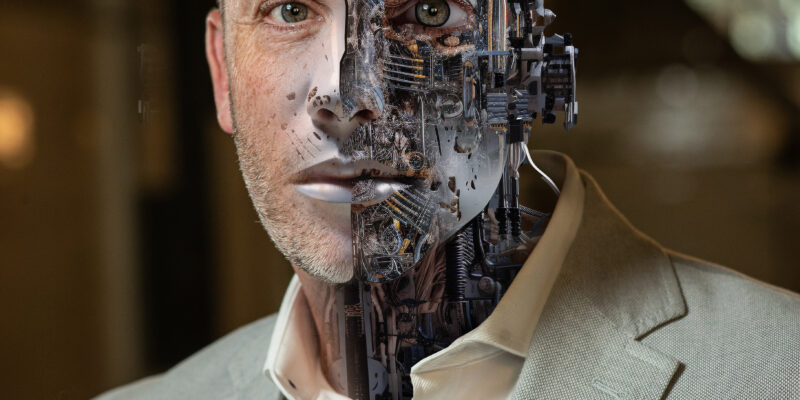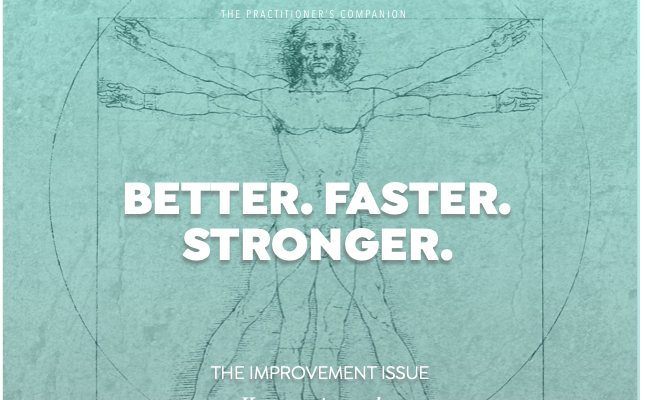Thriving in the AI revolution
With promises that generative AI will save time, improve efficiency, impress clients and streamline workflows, some critics are worried about the ethics, privacy and accuracy of the new technology. Australian Conveyancer Magazine talked to industry expert Hunter Steele to get the lowdown…

TIME-POOR conveyancers and property lawyers could slash their weekly work hours by up to 20 percent by implementing generative Artificial Intelligence (AI) and taking advantage of the largest technology shakeup in the industry since the advent of the cloud, according to an industry expert.
In what Hunter Steele, CEO of international law firm software company Smokeball, described as “the biggest shift” the profession has ever seen, conveyancers will soon have the secure and specialised tools to draft client correspondence, summaries and timelines in a “matter of seconds”.
And Steele believes this extra level of lightening-fast, AI-assisted productivity will be a game changer for the industry, giving conveyancers more hours in their days and more options to grow their businesses.
“Conveyancers are generally ‘fixed fee’ in nature – they want to get a good job done but the less time they spend on a matter, then the more money they make,” said Steele, who, with a degree in law and computer science, has worked in the conveyancing space for more than two decades and been at the helm of industry heavyweight Smokeball for the past six years.
“It literally comes down to economics. These days it’s getting harder for conveyancers to put their prices up. There’s a bit of a price war out there in some places. So, if they can get that work done faster and charge a reasonable rate for it, then that’s good from a productivity perspective.
“Either the conveyancer can get more work in the door because they have more time in the day, or they can go play golf or spend the time with their kids or do whatever they want to do.
“Using generative AI to get those hours back in the day, to make those matters more profitable, and put that time back in the hands of the conveyancer, I think it will create major impact and be a massive change.”
With its ability to automate processes and repetitive, time-consuming tasks, generative AI has the potential to free conveyancers and property lawyers to focus on more strategic, creative and value-added work, according to Steele.
Meanwhile he said generative AI’s ability to rapidly analyse large amounts of data enables faster and better-informed business decisions. It can also enhance customer experience through support and improved responsiveness and satisfaction; and enable scale and growth while giving business owners a competitive edge over their rivals.
Now in the process of fine-tuning its AI products, Steele said Smokeball this month (April) started beta testing a group of 20 conveyancing clients from a range of regions along the east coast and in South Australia, and is on track to launch its “second-to-none” AI offerings to Australian conveyancers in July this year.
“We are working with our beta clients closely, watching what kinds of things they are using the AI for, the prompts they are using and how they want to build it into their workflow to be more efficient,” Steele told Australian Conveyancer magazine.
“We have a good mix of beta clients from across the country because we want to monitor different workflows, different contracts, different documents, different people.
“We’re very excited to get it in the hands of clients and see exactly how they use it because that’s the fun thing about AI. When you talk to people about how they use generative AI or ChatGPT, people are dreaming up plenty of ways to use it by utilising different questions or prompts or outcomes to see what it comes back with.”
Steele said tests had shown conveyancers using Smokeball’s AI-enhanced software will be able to draft emails and correspondence to clients in mere moments, analyse an 80-page strata report for a specific by-law in seconds, and summarise timelines in the blink of an eye.
“Over the years we have built our technology to be a productivity powerhouse that our research shows can cut between 25-40% of time spent in a conveyancer’s day or working week,” he said. “In terms of adding generative AI to the Smokeball equation, we think it will really impact on productivity by another 10-20%. Which means if you’re 50% more efficient than someone down the street not using Smokeball with generative AI included, it’s going to be very hard to keep up.”

Last year a global survey of 1000 conveyancers and property law professionals, conducted by Smokeball, found 75% of respondents were keen to learn more about AI and how they could use it in their businesses; and 25 per cent of firms had already used it in their practices; although around 70 per cent of respondents were worried about the ethics, privacy and accuracy of the new technology.
“When we see figures showing 75% are interested, most of them are worried about it, and only 25% had used it, we take that as our job to not only educate the market but to provide tools that are safe and secure and as accurate as possible to be able to help them get their work done,” said Steele, who stressed cloud software security is the number one priority for his company and its clients.
While Steele is confident AI will be a must-have advantage for conveyancers and property lawyers, he won’t go so far as to say it will completely revolutionize the industry. And he said the human element in conveyancing remains vital and AI should essentially be used by conveyancers as a “first draft” tool.
“I think what people forget about AI is that it’s not perfect and there’s a good chance that it never will be,” he said. ‘It’s a tool that from a productivity perspective can get things done from a business and a personal point of view, from a first draft perspective. But I don’t think it’s going to replace humans in that we need a human to make a decision or we need emotion or we need all the other things that come along with being human.”
And Steele said concerns that AI will mean the loss of jobs or lower operational standards are unfounded in his view.
“For small law firms or conveyancers, I don’t think AI will replace them,” he said, “but I do think those who are using it alongside their own skills and knowledge will definitely eclipse those who don’t use it.”




